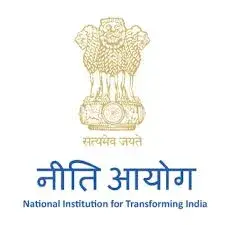India: NCLT orders freeing of attached property
 In a pragmatic approach, the NCLT allows the liquidator to be in-charge of the assets of the company under liquidation freeing the same from the purview of Enforcement Directorate.
In a pragmatic approach, the NCLT allows the liquidator to be in-charge of the assets of the company under liquidation freeing the same from the purview of Enforcement Directorate.
India: SEBI extends time for KYC compliance
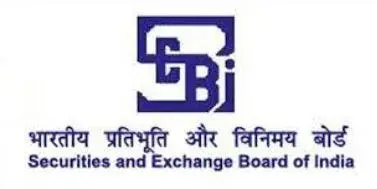 Amendment to the SEBI KYC regulations allow more time to ensure compliance to the same.
Amendment to the SEBI KYC regulations allow more time to ensure compliance to the same.
India: Gold may sparkle more with new Govt. policies
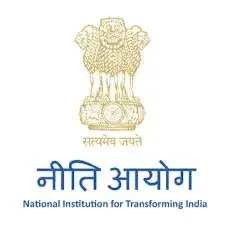
NITI Aayog proposes reforms in the policies regarding gold dependent business operations with a view to increase such transactions in the country.
India: Foreign Portfolio Investors registration with single form
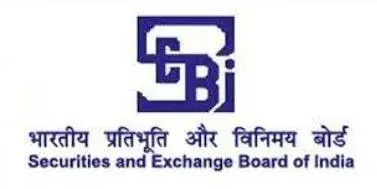
The Government introduces a single registration form for Foreign Portfolio Investors in order to overcome the procedural hurdles and facilitate ease of doing business in the country.
India a preferred FDI destination
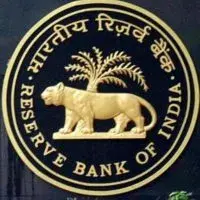 With the advancement in the regulatory framework and recent progress in the economy, India has become a favourable destination for investment.
With the advancement in the regulatory framework and recent progress in the economy, India has become a favourable destination for investment.
Cybersecurity – The Indian aspect
 The activities on the cyberspace in India are governed under the provisions of the Information Technology Act, 2000. The provisions of the Act not only regularize the authenticity of electrically submitted documents but also recognizes certain acts as offences penalizing the same.
The activities on the cyberspace in India are governed under the provisions of the Information Technology Act, 2000. The provisions of the Act not only regularize the authenticity of electrically submitted documents but also recognizes certain acts as offences penalizing the same.
India: NCLT orders freeing of attached property

Source: www.nclt.gov.in
The company being an independent legal entity is recognized for distinguished identity. The specialized corporate structure is monitored under the provisions of the Companies Act, 2013 (hereinafter referred to as the “Act”).
National Company Law Tribunal
With a view to regulate and administer the legal affairs with respect to a company, the Government has provided for the National Company Law Tribunal (hereinafter referred to as the “NCLT”) under the Act. This quasi-judicial body has been established in order to ensure meticulous and expeditious resolution of civil as well as criminal disputes concerning a company. The NCLT works according to the principles of natural justice not being bound by the rules of evidence and procedure laid under the judicial parameter.
The appeals from the decisions of NCLT may be contested to the appellate tribunal known as National Company Law Appellate Tribunal (hereinafter referred to as “NCLAT”) which may set-aside, modify or confirm the same.
Insolvency Resolution
The Government introduced the Insolvency and Bankruptcy Code, 2016 (hereinafter referred to as the “IBC”) with the aim at making availability of credit more transparent by maximizing the value of the assets in a time-bound manner. IBC restores the faith in the judicial mechanism and prevents the unscrupulous debtors from escaping the repayment of their debts by taking recourse to insolvency.
NCLT paves a new way
NCLT has ordered Enforcement Directorate of Delhi Zone to hand over to the liquidator, the possession of attached properties of the corporate debtor – REI Agro, one of the former renowned rice processing unit and now under liquidation. [1]
Up till now, the proceedings under NCLT didn’t impact cases where criminal laws were involved. Agencies such as Debt Recovery Tribunal, Enforcement Directorate or Securities and Exchange Board of India were confiscating assets and selling them in furtherance of dealing with criminal charges.
In this first of its kind order, it has been settled that the control and disposal of the assets would be done by the liquidator appointed under the IBC, thus allowing it supremacy to the authorities handling criminal cases.
The aforesaid order of NCLT sets a precedent by authorizing the liquidator under IBC to take the charge of all the assets of the company which would have to be disposed of and the proceeds to be distributed, once it goes under liquidation. The said judgment brings a ray of hope of the creditors where the Government agencies have attached the assets of the debtor company on account of frauds committed by them.
________________
India: SEBI extends time for KYC compliance
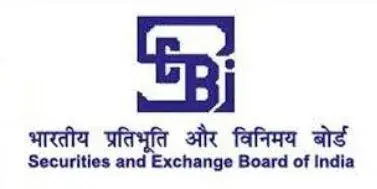
Source: www.sebi.gov.in
In order to promote investment in India, the Government designs investor- friendly policies. One of the modes of Investment in India is through Foreign Portfolio Investment (hereinafter referred to as “FPI”). These investments are highly liquid and indicate the indirect control of the investor in the management. The FPI are made by a person resident outside India through capital instruments. It involves buying and selling of shares, convertible debentures of Indian companies, and units of domestic mutual funds at any of the Indian stock exchanges.
FPI laws in India
In India, FPI are governed under the provisions of the Securities and Exchange Board of India Act, 1992 as well as the Securities and Exchange Board of India (Foreign Portfolio Investors) Regulations, 2014. The authority monitoring the guidelines for FPI regulation is the Securities and Exchange Board of India (hereinafter referred to as “SEBI”).
FPI: Know Your Client
With a view to ensure proper client identification and avoid risk against illegal transactions, the SEBI laid down Know Your Client (hereinafter referred to as “KYC”) regulations on April 10, 2018 (hereinafter referred to as “SEBI circular”), in respect of the foreign portfolio investors in order to cater to requisite information and details.
The said circular lays down the procedure for identification and verification of beneficial owners
(hereinafter referred to as “BOs”) who ultimately own and control the FPI, format for reporting for BOs, bearer share structure. The KYC reviews the documentation related thereto.
The SEBI has brought an amendment to the aforesaid circular, on August 21, 2018 (hereinafter referred to as the “SEBI amendment circular”) which provides for the extension of timelines up to December 31, 2018 in respect of the following:
- For requirement of foreign portfolio investors to provide a list of the BOs;
• To change the FPI structure in order to ensure compliance to SEBI guidelines; - For compliance of the existing FPIs or their investors identified on basis of threshold for identification of BO in accordance with Rule 9 of the Prevention of Money-laundering (Maintenance of Records) Rules, 2005;
- The foreign portfolio investors concerned should provide an undertaking/ declaration to appropriate authorities in case of exempted KYC supporting documents.
- To ensure compliance in case of existing foreign portfolio investors, whose clubbed investment in equity shares of a company are in breach of the provisions of Regulation 21(7) of Securities and Exchange Board of India (Foreign Portfolio Investors) Regulations, 2014.
Tightened Noose
The SEBI circular issued in April, 2018 tightened the noose on the foreign portfolio investors in terms of KYC norms as well as stricter compliance. The SEBI amendment circular provides an extended time window in order to ensure the obedience to the SEBI circular.
India: Gold may sparkle more with new Govt. policies
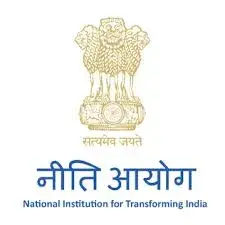
Source: www.niti.gov.in
From times immemorial, gold has had a great significance. The precious yellow metal has always attracted human attention. The desire of owning more and more quantities of this valuable metal has often ended up in criminal acts of various sorts. In the modern world, governed by numerous laws, commercialization and international transactions are regulated by the policies of the Government.
NITI Aayog
The premier think-tank of the Government of India, the National Institute for Transforming India (hereinafter referred to as “NITI Aayog”) provides critical information, innovation and entrepreneurial support to the country. Established via a resolution of the Union Cabinet on January 1, 2015, NITI Aayog aims at designing strategic and long-term policies and programmes for the Government and also provides relevant technical advice to the Centre and States.
Recommendations regarding gold transactions
NITI Aayog made suggestions regarding the carrying out of transactions related to gold in India, some of which are stated below :
- Decreasing the import duty on gold from the existing level of 10%;
- Reduction of the Goods and Service Tax (hereinafter referred to as “GST”) on gold from the current rate of 3%;
- Review and revamp the gold monetisation scheme and the sovereign gold bond scheme;
- Introduction of a new “gold savings account” in banks;
- Setting up of the Gold Board and bullion exchanges for the purpose of increasing commercialization of gold;
- Exemption of 3% Integrated Goods and Service Tax (hereinafter referred to as “IGST”) to be paid by exporter on line with custom duty with a provision of bank guarantee.
- IGST exemption in respect to the supply of gold by foreign buyer;
- The revision of threshold for exemption under GST, which at present is INR 2,000,000, on the basis of value-added. This can be determined by using average ratio of value added to value of sales for the sector concerned.
- Lower GST rate for repair service of jewellery i.e. from 18% to 3%.
- Scrapping of commodity transaction tax (hereinafter referred to as “CTT”) on gold derivatives and exemption on capital gains tax;
Legal Gold Dealings
NITI Aayog has made proposals to the Government for facilitation of gold-based business operations in the country. Lesser tax hurdles and greater awareness about the simplified procedures for dealing would promote more legal gold dealings and prevent the evils such as smuggling.
India: Foreign Portfolio Investors registration with single form
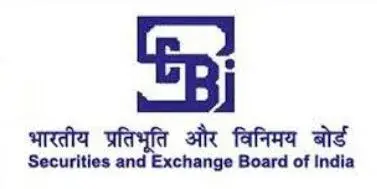
The Government has been constantly working to promote foreign investment in the country. Investor friendly policies such as Foreign Portfolio Investment have seen a number of amendments. These investments are made by foreign investors (hereinafter referred to as “Foreign Portfolio Investors” or “FPI”) through capital instruments and are highly liquid indicating the indirect control of the investor in the management.
Bottlenecks faced by FPIs
The FPIs had been dealing with the cumbersome procedure involved to file a separate form to register themselves with the Securities and Exchange Board of India (hereinafter referred to as “SEBI”). Also, they had to approach the banks for opening accounts, income tax department for Permanent Account Number (hereinafter referred to as “PAN”) and market intermediaries for dematerialization accounts for the purpose of carrying out foreign portfolio investment in India.
Solution by the Government
With a view to simplify the process of investment and enhance the operational flexibility while ease of access to Indian capital markets, SEBI, Reserve Bank of India and Central Board of Direct Taxes has introduced a single application form for registration for FPIs.
Advantages of the Single Application Form
The single application form for FPIs allows registration with the SEBI, allotment of PAN and ‘Know Your Customer’ requirements for opening bank and dematerialization accounts. This aims to reduce time and money of the investors. It is also aligned with the Government’s approach of ease to do business in India.
The Government has been working towards increasing facilitation of foreign portfolio investment in India. Earlier, on August 21, 2018, SEBI had extended the deadline of ‘Know Your Customer’ compliances for FPIs. Now, with the investor friendly single application form, foreign portfolio investment in India is likely to see a substantial increase.
India a preferred FDI destination
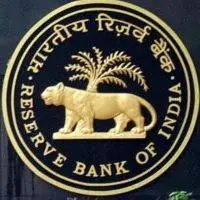
Source: www.rbi.org.in
The Indian economy is largely an agro-based economy, being a land of farmers. Tractors and other scientifically advanced farm equipment are rampantly visible on the Indian agricultural farms which have replaced the traditionally used cattle and primitive methods. With the changing times and increasing acceptance of science and technology, there has been a rapid growth and development of the industrial sector. The service sector including construction, trade, commerce, banking system etc. has also seen a sufficient rise. In the past few years India has witnessed an overall improvement in the socio-economic structure covering essential facets such as education, health, housing power, energy, transport, communication etc. Having a mixed economy structure, India offers the upliftment of both public and private sectors of the country.
Investment in India – A favourable option
India remains a preferred destination for foreign direct investment (hereinafter referred to as “FDI”) as domestic consumption remains strong, according to the Reserve Bank of India’s Annual Report. In the environment of a strengthening global economy, a cyclical rebound in world trade and generally buoyant financial markets, the Indian economy in 2017-18 turned in a resilient performance that was also entrenched in macroeconomic stability.
Manufacturing activity is gathering momentum on the back of new business, both domestic and export orders, rising capacity utilisation and drawdown of inventories. Therefore, Indian industrial as well as corporate structure has showed increased pace of progress making it a favourable investment destination.
With the ongoing policy reforms in sectors ranging from single brand retail trading, civil aviation, real estate broking service and simplification of legal and regulatory system, India moved into the top 100 countries in the World Bank’s Ease of Doing Business global rankings. Additionally, the Government has liberalized its policies with a view to attract more investment opportunities in India.
Owing to the investment favourable conditions, India received USD 37.3 billion capital inflow in 2017-18 as compared with USD 36.3 billion in the previous fiscal, thus increasing the foreign direct investment in the country.
Cybersecurity – The Indian aspect

The advancement of technology facilitates the expansion of the horizon of electronic media but it also gives rise to the risks posed while using the online system. Threats created in the cyberspace, challenge the safety of the users. The legislative bodies of the country work consistently towards safeguarding the interests of the persons active on the e-platforms.
Legal structure in India
With a view to regularize the validity of e-documents and protect users of the cyber world, the Government of India enforced the Information Technology Act, 2000 (hereinafter referred to as the “Act”). The Act aims to shield the users against the dangers of cybercrimes. Owing to the usage of the electronic mode for criminal purposes, it often becomes difficult to prohibit such activities. However, the Act provides penal consequences in the event of occurrence of offences over the cyberspace.
Cybercrimes
Some of the cyber activities which are regarded as offences and legal consequences thereof under the provisions of the Act are stated below:
- Damage to computer, computer system (Section 43 of the Act)
Where a person without the consent of the owner, or any other person who is in charge of a computer system, accesses, downloads, copies information, causes introduction of virus, damages/ disrupts the computer, denies access, facilitates remote access to third party, etc. he shall be liable to pay damages by way of compensation not exceeding INR 100,000,000 to the person so affected.
Any person who dishonestly, or fraudulently, does any act referred above shall be punishable with imprisonment for a term which may extend to two three years or with fine which may extend to INR 500,000 or with both. (Section 66 of the Act)
- Tampering with Computer Source Documents (Section 65 of the Act)
Any person who knowingly or intentionally conceals, destroys or alters or intentionally or knowingly causes another to conceal, destroy or alter any computer source code, shall be punishable with imprisonment up to three years, or with fine which may extend up to INR 200,000 or with both. - Sending offensive messages through communication service (Section 66A of the Act)
Any person involved in sending any information, through electronic media, which he knows to be false for purpose of causing annoyance, inconvenience, danger, obstruction, insult, injury, criminal intimidation, enmity, hatred, or ill will, shall be punishable with imprisonment for a term which may extend to two three years and with fine. - Identity theft (Section 66C of the Act)
Whoever, fraudulently or dishonestly make use of the electronic signature, password or any other unique identification feature of any other person, shall be punished with imprisonment of either description for a term which may extend to three years and shall also be liable to fine which may extend to INR 100,000. - Cheating by impersonation by using computer resource (Section 66D of the Act)
Whoever, by means of any communication device or computer resource cheats by personation, shall be punished with imprisonment of either description for a term which may extend to three years and shall also be liable a to fine which may extend to INR 100,000. - Violation of privacy (Section 66E of the Act)
Whoever, intentionally or knowingly captures, publishes or transmits the image of a private area of any person without his or her consent, under circumstances violating the privacy of that person, shall be punished with imprisonment which may extend to three years or with fine not exceeding INR 200,000, or with both
- Cyber Terrorism (Section 66F of the Act)
Whoever, with the intent to threaten the unity, integrity, security or sovereignty of India or to strike terror in the people, knowingly or intentionally penetrates or accesses a computer resource without authorisation or exceeding authorized access, denies access or introduces a computer contaminant, shall be punishable with imprisonment which may extend to imprisonment for life’. - Publishing or transmitting obscene material in electronic form (Section 67 of the Act)
Whoever publishes or transmits or causes to be published in the electronic form, any obsence material shall be punished with imprisonment of either description for a term which may extend to five years and a with fine which may extend to INR 500,000 (1st conviction) and with imprisonment of either description for a term which may extend to five years and also with fine which may extend to INR 1,000,000 (subsequent conviction). - Publishing or transmitting of material depicting sexually explicit act, etc. (Section 67A & 67B of the Act)
Whoever publishes or transmits or causes to be published or transmitted in the electronic form any material which contains sexually explicit act, shall be punished with imprisonment of either description for a term which may extend to five years and with a fine which may extend to INR 1,000,000 at first conviction and with imprisonment of either description for a term which may extend to seven years and also with fine which may extend to INR 1,000,000 on subsequent conviction. - Unauthorized access to the Protected system (Section 70 of the Act)
Any person who secures access or attempts to secure access to a protected system which directly or indirectly affects the facility of Critical Information Infrastructure, shall be punished with imprisonment of either description for a term which may extend to ten years and shall also be liable to fine. - Breach of confidentiality and privacy (Section 72 of the Act)
Any person, who has secured access to any electronic record, book, register, correspondence, information, document or other material without the consent of the person concerned discloses such electronic record, book, register, correspondence, information, document or other material to any other person shall be punished with imprisonment for a term which may extend to two years, or with fine which may extend to INR 100,000, or with both. - Disclosure of information in breach of lawful contract (Section 72A of the Act)
Any person, who while providing services under the terms of lawful contract, has secured access to any material containing personal information about another person, with the intent to cause or knowing that he is likely to cause wrongful loss or wrongful gain discloses, without the consent of the person concerned, or in breach of a lawful contract, such material to any other person shall be punished with imprisonment for a term which may extend to three years, or with a fine which may extend to INR 500,000, or with both. - Publishing Digital Signature Certificate false in certain particulars (Section 73 of the Act)
Any person who publishes an Electronic Signature Certificate or otherwise make it available to any other person with the knowledge that the Certifying Authority listed in the certificate has not issued it; or the subscriber listed in the certificate has not accepted it; or the certificate has been revoked or suspended, shall be punished with imprisonment for a term which may extend to two years, or with fine which may extend to INR 100,000, or with both. - Publication of Electronic Signature for fraudulent purpose (Section 74 of the Act)
Whoever knowingly creates, publishes or otherwise makes available an Electronic Signature Certificate for any fraudulent or unlawful purpose shall be punished with imprisonment for a term which may extend to two years, or with fine which may extend to INR 100,000, or with both.
Going forward
With the increasing focus of the Government on digitalization of the country, most of the transactions have acquired a digital form. It is necessary to create awareness among people regarding the importance of cybersecurity. The Government campaigns to alert the citizens regarding the maintenance of confidentiality of their sensitive personal information.


